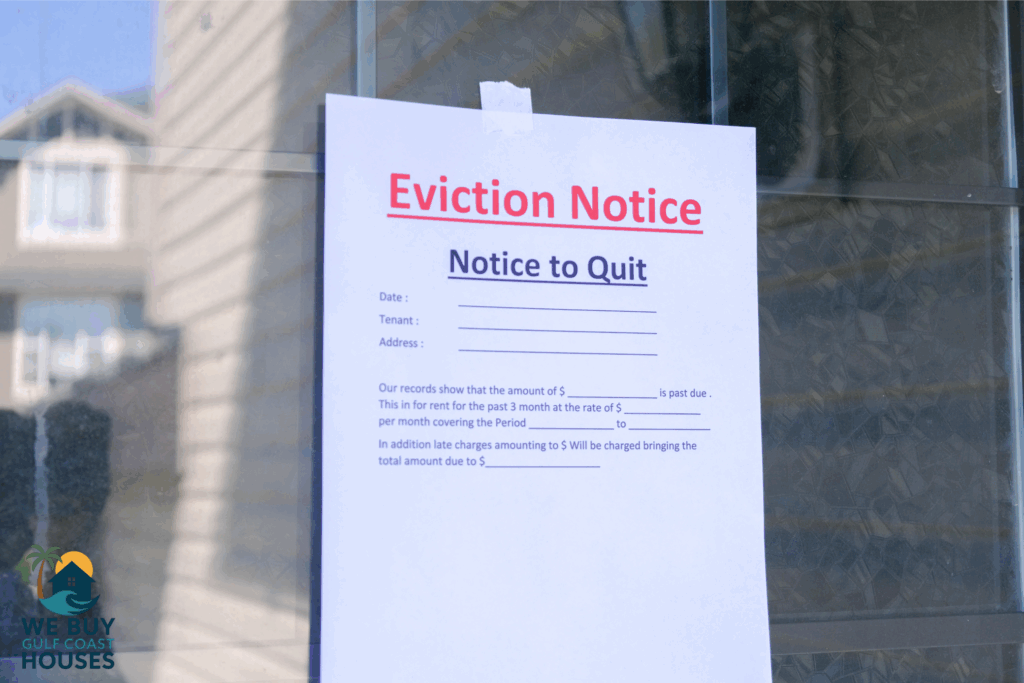Evicting a tenant without a lease in Florida in 2025 can be a frustrating and time-consuming process. Even without a written lease, tenants have legal protections under Florida law. Whether your tenant is on a month-to-month basis or staying with an informal agreement, you must follow the proper procedures to regain possession of your property legally.

Understanding Florida Eviction Laws Without a Lease (2025)
In Florida, tenants without a formal lease are considered “tenants at will” and are protected under Florida Statute Chapter 83. This includes tenants with oral agreements or those who stay after a lease has expired but continue paying rent.
Common Reasons to Evict a Tenant Without a Lease in Florida
You can evict a tenant without a lease for several reasons:
- Nonpayment of rent
- Violation of rental rules (e.g., property damage, illegal activity, disturbances)
- Termination of a month-to-month tenancy with proper notice
The Legal Eviction Process Without a Lease in Florida (2025)
Step 1: Serve the Proper Notice
Florida law requires different notices depending on the situation:
- Nonpayment of rent: Serve a 3-Day Notice to Pay or Quit (excluding weekends/holidays)
- Fixable lease violations: Serve a 7-Day Notice with a Chance to Cure
- Serious or repeat violations: Serve a 7-Day Unconditional Quit Notice
- Termination of tenancy:
- Week-to-week: 7 days
- Month-to-month: 15 days
- Quarterly: 30 days
- Annual: 60 days
Delivery must be in person, by mail, or posted at the residence.
👉 Download a sample Notice to Vacate for Florida (2025)
Step 2: File an Eviction Complaint
If the tenant fails to comply, file an eviction complaint at the county courthouse where the property is located. You’ll need to provide:
- Proof of notice delivery
- The reason for eviction
- Any unpaid rent or damages
Fees vary by county but typically range from $185 to $300.
Step 3: Court Hearing and Judgment
After filing, the tenant has five business days to respond. A hearing is scheduled, where you’ll need:
- Proof of rent history
- Photos of any damage
- Copies of notices
- Communication records
If the court rules in your favor, a Judgment for Possession will be issued.
Step 4: Obtain a Writ of Possession
Once the judgment is granted, the clerk issues a Writ of Possession, authorizing the county sheriff to remove the tenant. Florida law prohibits landlords from removing tenants or their belongings without this writ.
🔗 More on Florida eviction court procedures from Florida Courts
Tenant Rights in Florida Without a Lease (2025)
Tenants without a lease still have rights, including:
- Proper legal notice
- A court hearing before removal
- Protection from illegal eviction tactics (e.g., changing locks, cutting utilities)
Common Mistakes to Avoid
- Giving the wrong type or length of notice
- Attempting a self-help eviction
- Skipping court procedures
- Inadequate documentation
When to Consider Selling Instead of Evicting
If the process becomes overwhelming, consider selling your rental to a reputable cash buyer. We Buy Gulf Coast Houses buys properties as-is—no repairs, no delays, no legal headaches.
👉 Learn more: Sell My House Fast Fort Myers FL 👉 We buy houses in Naples, Cape Coral, and across Southwest Florida
Final Thoughts
Evicting a tenant without a lease in Florida in 2025 is possible when done by the book. Following legal procedures not only protects your investment but avoids costly missteps. When in doubt, consult a Florida landlord-tenant attorney. Laws can vary from state-to-state. Evicting a tenant in Ohio can be much different than in Florida.
Frequently Asked Questions (FAQ)
1. Can I evict a tenant in Florida if there is no lease agreement?
Yes. Florida law allows eviction of a “tenant at will” as long as the proper notice is given and legal procedures are followed.
2. What are the main reasons to evict a tenant without a lease in Florida?
Nonpayment of rent, rule violations, and lawful termination of periodic tenancy (e.g., month-to-month) are common reasons.
3. How much notice do I need to give to end a month-to-month tenancy in Florida?
Florida requires 15 days’ notice prior to the end of the rental period for a month-to-month agreement.
4. What happens if the tenant doesn’t leave after notice?
You must file an eviction complaint. If they don’t respond within five business days, the court may grant a default judgment.
5. Can I legally remove a tenant after winning the case?
Only the sheriff can legally remove the tenant via a Writ of Possession. Self-help evictions are illegal.
6. Is it legal to change the locks or shut off utilities?
No. These are forms of illegal eviction and can result in legal penalties against you.
7. Do tenants still have rights in Florida without a lease?
Yes. They are protected under Florida law and entitled to proper notice and court proceedings.
8. What should I do if I make a mistake during the process?
Mistakes can delay or void an eviction. Seek legal advice from a qualified Florida eviction attorney.
9. How can I avoid the hassle of evicting a difficult tenant?
You can sell your property to We Buy Gulf Coast Houses. We close fast and handle all the details.
10. Where can I find legal help for tenant evictions in Florida?
Consult a Florida landlord-tenant attorney or visit Florida Courts for more information.
Author Bio: This article was written by the team at We Buy Gulf Coast Houses, a trusted local homebuyer based in Fort Myers, Florida. With years of experience helping homeowners sell fast without fees, repairs, or hassles, we’re proud to serve communities from Marco Island to Cape Coral. Learn more at webuygulfcoasthouses.com.
Legal Disclaimer: This article is provided for general informational purposes only and is not legal advice. I am not an attorney. The content is based on my experience as a real estate professional. For legal advice specific to your situation, please consult with a qualified Florida landlord-tenant attorney.
